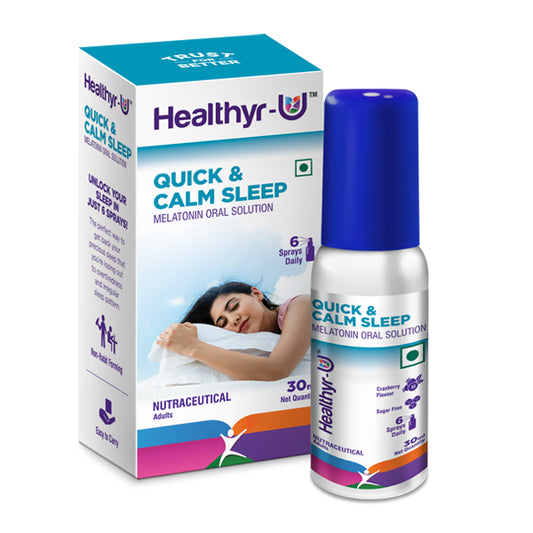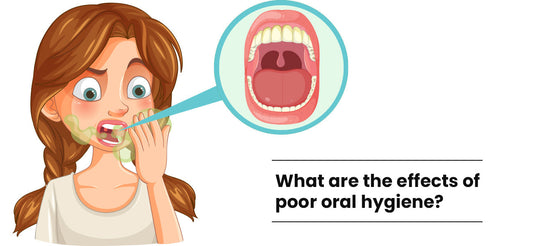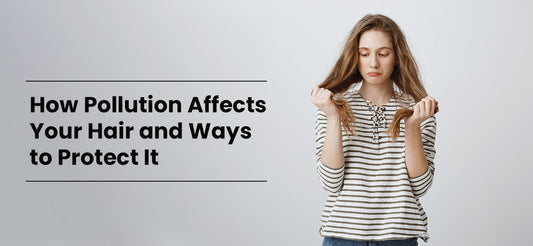Most people focus on hair care products like shampoos, conditioners, and serums while ignoring the foundation of healthy hair growth - the scalp. A healthy scalp is essential for strong, vibrant hair, while an unhealthy scalp can lead to dandruff, itching, excessive oiliness, and even hair thinning.
If you struggle with dry hair, an itchy scalp, or slow hair growth, the issue may not be your hair strands - it could be your scalp health.
This guide will discuss top scalp care tips and how proper care, nutrition, and hair care tablets can improve scalp health for hair growth.
Why Does Scalp Health Matter for Hair Growth?
Think of your scalp like soil, if the soil is healthy, plants grow strong. Similarly, a healthy scalp provides the right environment for hair follicles to thrive(1).
An unhealthy scalp can lead to(2):
• Increased hair fall due to clogged follicles.
• Slow hair growth because of poor blood circulation.
• Dandruff and scalp irritation, making hair more fragile.
• Oily or dry scalp issues, leading to an imbalance in hair hydration.
By improving scalp health, you encourage healthy hair growth, strengthen follicles, and prevent common scalp problems.
Top Scalp Care Tips for Healthy Hair Growth
1. Keep Your Scalp Clean but Avoid Overwashing
Washing your hair is essential to remove dirt, excess oil, and product buildup that can clog hair follicles. However, overwashing can strip your scalp of its natural oils, causing dryness and irritation.
• For oily scalps: Wash hair with a mild, sulfate-free shampoo to prevent excessive oil production.
• For dry scalps: Wash using a hydrating shampoo to maintain moisture balance.
• For sensitive scalps: Use a scalp-friendly shampoo with soothing ingredients like aloe vera.
• Always massage your scalp gently when washing as scrubbing too hard can cause irritation and microtears on the scalp.
2. Massage Your Scalp for Better Circulation
A simple scalp massage can significantly improve blood circulation, ensuring that your hair follicles receive oxygen and nutrients necessary for healthy hair growth.
• How to Massage:
Use your fingertips (not nails) to gently massage in circular motions.
Massage for at least 5 minutes daily to boost scalp circulation.
If you prefer, use a scalp massager to increase stimulation.
Scalp massage can help increase blood flow to hair follicles, improve hair growth, and distribute natural oils keeping the scalp hydrated. It can also reduce stress, which is a common cause of hair thinning(3).
A few best oils for scalp massage are Coconut oil, Castor oil and Rosemary oil.
3. Exfoliate to Remove Buildup
Just like your skin, your scalp also accumulates dead skin cells, dirt, and product buildup, which can clog pores and slow healthy hair growth. Regular exfoliation keeps your scalp fresh and promotes better oxygen flow to the hair follicles.
• How to Exfoliate Your Scalp:
Use a scalp scrub or a scalp exfoliating shampoo once a week.
Look for ingredients like salicylic acid or tea tree oil that cleanse deeply without stripping natural oils. It is better to gently massage the scrub into the scalp, avoiding harsh rubbing.
Scalp exfoliation can help remove dandruff and dead skin cells, prevent clogged hair follicles and balance oil production for scalp health(4).
4. Keep Your Scalp Hydrated
A dry scalp can cause itching, flaking, and irritation, making your hair more prone to breakage. Hydration is key to scalp health and healthy hair growth.
• How to Hydrate Your Scalp:
Use light hair oils to nourish without making hair greasy.
Drink at least 8 glasses of water daily to maintain hydration from within. Reduce hot showers, as high temperatures can strip moisture from the scalp.
Tight or itchy sensation, white flakes (not dandruff) and increased hair breakage are a few signs of a dry scalp. Regular hydration ensures scalp health for hair growth, prevents irritation and promotes softer, stronger hair.
5. Avoid Heavy Styling Products
Many styling products, including hairsprays, gels, etc. can leave behind residue that affects scalp health. Excess buildup can clog pores, causing inflammation and unhealthy scalp conditions(5).
It is advisable to use styling products sparingly, choosing lightweight formulas, and washing off styling products before bed to prevent scalp congestion.
Choosing scalp-friendly products will ensure healthy hair growth without irritating your scalp.
6. Protect Your Scalp from the Sun
Most people apply sunscreen to their skin but forget that the scalp is also vulnerable to UV damage. Prolonged sun exposure can cause dryness, burns, and premature thinning of hair(6).
Here are a few ways to protect your scalp:
• Wear a hat or scarf when exposed to direct sunlight for long hours.
• Use a UV-protectant scalp spray if you spend a lot of time outdoors.
• Keep your scalp hydrated with aloe vera-based serums to prevent sun damage.
Sun protection helps maintain scalp health, preventing inflammation and unhealthy scalp conditions.
7. Choose the Right Pillowcase
Did you know your pillowcase can impact scalp health for hair growth?
Rough fabrics cause friction, which can lead to hair breakage and scalp irritation.
Cotton pillowcases absorb excess oil but should be changed frequently to prevent bacterial buildup. It is advisable to wash pillowcases at least once a week to remove oils, sweat, and bacteria that can lead to an unhealthy scalp.
Switching to gentle fabrics helps protect both your scalp health and healthy hair growth.
Essential Nutrients and Supplements for Scalp Health
A balanced diet is critical for healthy hair growth. Here are the key nutrients that support scalp health(7):
- Biotin (Vitamin B7) – Strengthens hair follicles and improves scalp condition.
- Vitamin D – Stimulates hair growth and prevents hair shedding.
- Omega-3 Fatty Acids – Hydrate the scalp and reduce inflammation.
- Zinc – Regulates oil production and prevents dandruff.
- Iron – Supports blood circulation to nourish hair follicles.
If you are not getting enough nutrients from food, a hair care tablet can support healthy hair growth. Choose supplements with:
- Biotin & Collagen for follicle strength.
- Vitamin C & E for antioxidant protection.
- Keratin & Amino Acids for better scalp structure.
When combined with proper scalp care tips, supplements can enhance scalp health for hair growth and prevent deficiencies that cause unhealthy scalp conditions.
Summary
Focusing on scalp care is the secret to healthy hair growth. By keeping your scalp clean, hydrated, and nourished with the right nutrients, you can prevent unhealthy scalp conditions and encourage stronger, shinier hair.
With the right scalp care tips, a hair care tablet, and a consistent routine, you’ll see noticeable improvements in your hair’s thickness and texture. Start today, because healthy hair begins with a healthy scalp!
References
- Kim, S., Shin, S., Kim, S., & Na, Y. (2021). Understanding the characteristics of the scalp for developing scalp care products. Journal of Cosmetics Dermatological Sciences and Applications, 11(03), 204–216. https://doi.org/10.4236/jcdsa.2021.113018
- Trueb, R., Henry, J., Davis, M., & Schwartz, J. (2018). Scalp condition impacts hair growth and retention via oxidative stress. International Journal of Trichology, 10(6), 262. https://doi.org/10.4103/ijt.ijt_57_18
- Koyama T, Kobayashi K, Hama T, Murakami K, Ogawa R. Standardized Scalp Massage Results in Increased Hair Thickness by Inducing Stretching Forces to Dermal Papilla Cells in the Subcutaneous Tissue. Eplasty. 2016 Jan 25;16:e8. PMID: 26904154; PMCID: PMC4740347
- Patel, M. N., Patel, N., Merja, A., & Patnaik, S. (2024). An assessment of the safety, efficacy, and tolerability of a novel scalp treatment regimen Combining a hydroxy Acid-Based scrub and copper tripeptide serum in the management of seborrheic dermatitis in adults. Cureus. https://doi.org/10.7759/cureus.70108
- Dias, M. F. G. (2015). Hair cosmetics: An overview. International Journal of Trichology, 7(1), 2. https://doi.org/10.4103/0974-7753.153450
- Sebetić K, Sjerobabski Masnec I, Cavka V, Biljan D, Krolo I. UV damage of the hair. Coll Antropol. 2008 Oct;32 Suppl 2:163-5. PMID: 19138021.
- Guo, E. L., & Katta, R. (2017b). Diet and hair loss: effects of nutrient deficiency and supplement use. Dermatology Practical & Conceptual, 1–10. https://doi.org/10.5826/dpc.0701a01









